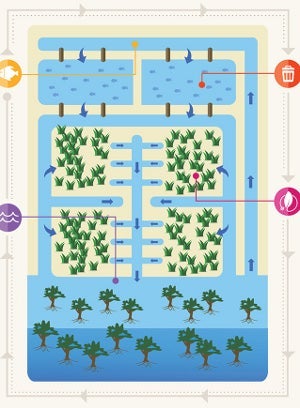
International Mechanical & Electrical Co will build a pilot seawater bioenergy plant in Masdar city in Abu Dhabi, under a contract awarded by the Sustainable Bioenergy Research Consortium (SBRC).
The plant will test the Integrated Seawater Energy and Agriculture System (ISEAS) developed by the SBRC.

Discover B2B Marketing That Performs
Combine business intelligence and editorial excellence to reach engaged professionals across 36 leading media platforms.
Formed by the Masdar Institute of Science and Technology, Boeing, Etihad Airways, Boeing and Honeywell UOP in 2011, the SBRC has researched the possibility of producing food, cultivating arid plants, and producing bioenergy using seawater.
Safran and GE joined the project subsequently.
The ISEAS involves the cultivation of fish and shrimp using seawater for food consumption. The nutrient-rich wastewater released in the process is used to grow arid and desert oil plants.
The plants are harvested to produce jet fuel and bioenergy.

US Tariffs are shifting - will you react or anticipate?
Don’t let policy changes catch you off guard. Stay proactive with real-time data and expert analysis.
By GlobalDataMasdar Institute CEO Ahmad Belhoul said: "This remarkable research has enormous implications for harmoniously producing food and fuel in water- and arable land-constrained regions.
"Considering that about 20 percent of the world’s land is desert and 97 percent of the world’s water is salt water, this approach turns a land and water resource scarcity problem on its head by creating a bioenergy solution applicable in countries around the globe."
The two-hectare pilot project is scheduled to be completed later this year. It will be followed by a demonstration plant to be built on a 200-hectare site in Abu Dhabi.
Masdar Institute president Fred Moavenzadeh said: "Masdar Institute is in pursuit of solutions to the water-food-energy nexus, which is being taken to the next level through this contract.
"Collaborative undertakings like the one we are engaged with through the SBRC will enhance our ability to sustainably meet the UAE’s growing needs."
Image: An illustration of ISEAS process. Photo: courtesy of Masdar Institute.



